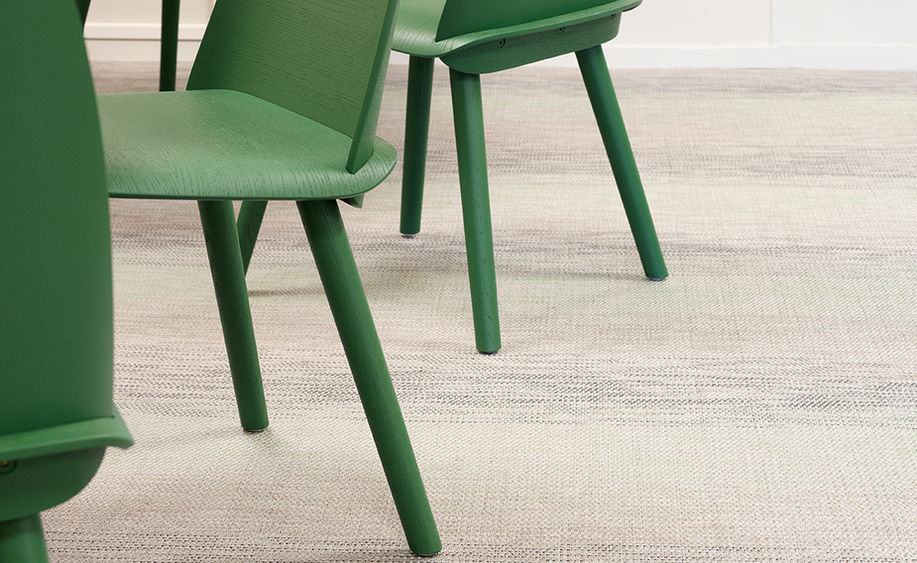

In the global society as we know it today, the problem of waste disposal is constantly growing. As our consumption increases, so does the amount of waste. Therefore, the question is, how do we deal with this constant and growing waste stream, which with globalization is no longer a local problem but a global issue.
A proportion of the waste that our society generates every day, can be reused or recycled into new products, and that is no doubt the best way to handle waste; to let it back into the circular economy. However, some of the waste is hazardous and needs specialized treatment in a very controlled way, the bulk of residual waste being generated worldwide today has to be either landfilled or incinerated, whereas landfills space is becoming more and more scarce as the European Union has deemed landfilling a non-viable solution.
At EFO we offer solutions to this problem on a global basis, by bringing their residual waste to our owners, with state of the art energy from waste facilities enabling us to handle residual waste and at the same time as creating valuable electricity and heat for homes and offices, a highly valued resource in a northerly country like Sweden with its long and cold winters. This capability, to turn residual waste into heat and electricity, does not apply everywhere. It needs the infrastructure of a district heating network, to distribute and make use of the heat generated, why in many countries, residual waste is incinerated without benefitting from the heat generated during the process.
A constant flow of waste turned into energy

Fortunately, in Sweden, almost all cities have a district heating network, as centralized heating is the main source of heating for urban homes and offices, a method which needs a constant flow of material to function. For decades Sweden was dependent on coal and oil for heat generation, but as landfills became non-viable and subsequently banned in Sweden, EFO’s owners managed to convert their boilers and thus find a solution to the never-ending problem of continuous residual waste arisings. This is why for us in Sweden, waste is no longer simply a problem, it is now an opportunity; treated in the right way of course. At EFO we have been relocating energy for over 40 years. EFO was founded on the need for securing the supply of fuel for its owners, a group of Swedish Utility companies, at the time when oil and coal were the basis for heat generation.
But as a consequence of the growing need for an environmentally viable solution for the continuous arising of residual waste EFO has shifted its business to offer the waste service to international customers as a solution to the never-ending flow of waste.
Some people might think – is this really sustainable to transport waste from one country to another simply to avoid landfill? The answer to that question is YES. First of all – the presence of district heating infrastructure enables us to make use of 95% of the energy contain in the waste, secondly – residual waste that is landfilled generates methane gas as it is decaying, a gas that is 30 times more potent than CO2. Thirdly, residual waste is a low-value commodity that needs a very efficient logistic solution, we are dependent on imbalances in the logistics market to transport the residual waste on trucks, containers, or vessels that are empty and returning to pick up new cargo, thus not adding any unnecessary freight or CO2.
We live in a global world, with a global supply chain where we accept that the goods we consume travel back and forth to suit our needs at a time of our choosing. At EFO we pride ourselves on being able to offer the world a solution to the increasing need of handling side effects of our ever-growing consumption need and we at EFO would strongly argue that the world needs our residual waste solutions, we do not need the waste, the waste needs us!

1975
Year established
350
Shipments per year
1 000 000
Tons of fuel relocated annually
+20
International partners worldwide

Our partners
All partners in EFO; both owners and suppliers are a part of the EFO community, where sharing and exchanging information both makes us stronger individually and as a group.
Thanks to our solid network, we are able to quickly adopt and adapt and thus not only improving the everyday business but also affecting the market surrounding us.
This helps us reach a higher level of stability and helps all our hard-working employees widen their insights. Important for Sweden, as Sweden is completely dependent on importing residual waste – and important for all partners in our network, as it creates value for anyone in it.
ENA Energi supplies large parts of Enköping with district heating and we are driven by three core values – Heat, Nearness, and Environment. The company was founded in 1972 and since the 1990's we have produced electricity and heat almost exclusively with biofuel, which provides residents and entrepreneurs in Enköping with a secure supply of energy.
Read more at www.enae.se
Halmstad Energi
We supply electricity to your coffee maker 24 hours a day, 365 days a year and take care of it after it has brewed its last cup. Our employees are everyday heroes. We at HEM provide over 45,000 customers in Halmstad with various services in waste management and energy. We have been around for a long time, but in our current constellation since November 1, 2006. We are approximately 260 employees and are made up of four business areas and a management function.
Learn more at www.hem.se
Jönköping Energi
We supply electricity, heating, cooling and city networks to 55,000 customers. We make sure that you can brew a cup of coffee, stream the latest film and that the lamp posts show the way during dark autumn walks. It is easy to be a customer with us, we are close to you and contribute to a sustainable society. We are proud to work with energy and climate issues, and together with you as a customer are a good force for Jönköping.
Read more at www.jonkopingenergi.se
Mälarenergi
Our mission is to make it easy for you to maintain a sustainable life. We make sure that our infrastructure, services, and products contribute to a sustainable society – so that you don’t have to worry about it. By always being available to our clients and providing socially, economically, and ecologically sustainable offers we create the proper conditions for a growing industry and society.
Read more at www.malarenergi.se
Sundsvall Energi
Sustainability issues are important to us and we are constantly working to develop and take our responsibility. We are a major and important player for all Sundsvall residents when it comes to services and products linked to energy. But we are more than just that.
Our joint mission also contributes to the development of the region. To provide services that are good for people and good for our environment. We recycle electricity and heat from waste, this is both an energy-efficient and sustainable heating alternative that is made possible by our district heating customers.
Learn more at www.sundsvallenergi.se
Söderenergi
We produce district heating for about 300 000 people, offices, and industries in the Stockholm region, around the clock, all year. In our plant, we also produce an amount of electricity equivalent to the use in 100 000 households. It is sold directly to the Nordic power exchange. In one year we transform One million tons of waste into energy. Half of it is shipped to us in our Södertälje harbor. The production takes place in our three different plants – Igelsta power heating plant, Igelsta district heating plant, and the Fittja plant.
Learn more at www.soderenergi.se
Our main fuels
Refuse derived fuel (RDF)
Refuse derived fuel pellets, or energy pellets, can be produced from these cleaned and sorted recycled materials after further processing.
Waste Wood (RWW)
Recycled wood is obtained from the construction or demolition of buildings, as well as from scrapped pallets and furniture.
Forest Wood Residue (FWR)
Forest wood residue is made from materials collected directly from forests. Forest management results in dead or decaying stems as well as those trees that have been thinned out.
Closing the loop
The circular “take-make-consume-reuse-recycle-recover” economy implies that we recover the materials and energy from discarded products. When a product reaches the end of its life, materials and energy are kept within the economy, so that they can be used again and again, thereby creating further value.















